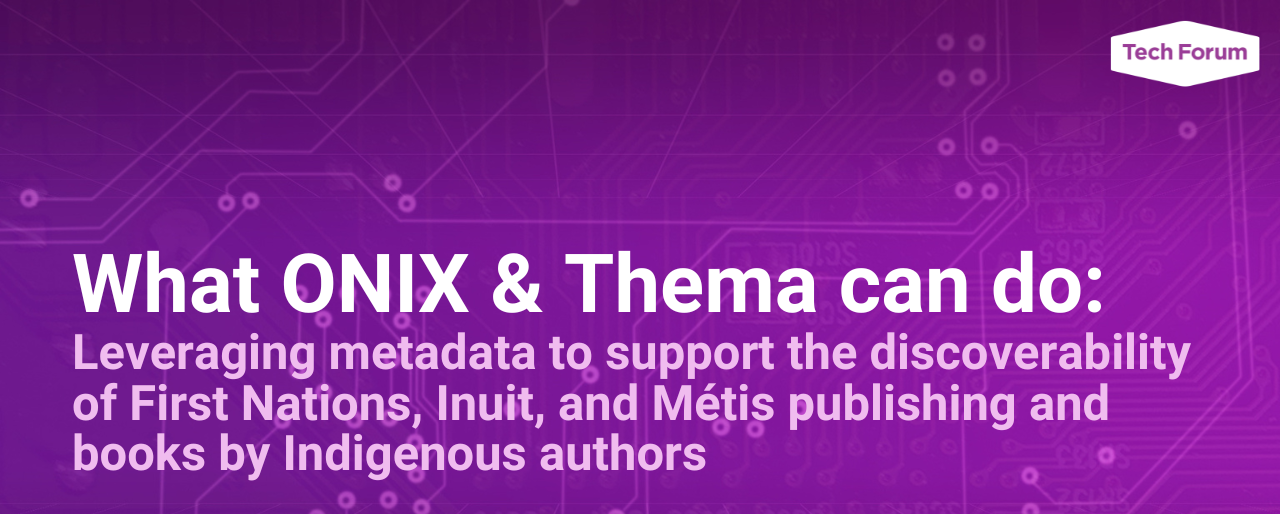As confirmed in an earlier blog post, the Book Industry Study Group (BISG) has published the 2023 update to its book publishing subject codes, often referred to as BISAC Subject Headings. Accordingly, all BookNet products & services have been updated with the 2023 list of codes, including the BISAC to Thema Translator.
We can hear the whispers now…
What’s the BISAC to Thema Translator?
Back in 2014, BookNet Canada and the Book Industry Study Group worked together to launch a free web-based tool that translates BISAC subject codes into Thema subject and qualifier codes.
The BISAC to Thema Translator makes use of mapping to give publishers an easy way to translate the BISAC codes they already use into Thema codes that they should be using. After all, BISAC and Thema are actually complementary subject systems that are stronger together for the North American market, compared to using just one subject coding system over the other.
And since it was no problem answering one question, let’s answer some more….
Where can I find this BISAC to Thema Translator?
Right here: bisactothema.biblioshare.org.
How much does it cost to use?
Nothing! (Maybe a few high-fives.)
How does the BISAC to Thema Translator work?
The translator allows for two ways in which to look up code translations. After confirming your human status by entering your email address and recreating the captcha (don’t worry, we won’t email you unless you ask us to), you can either perform a quick one-off lookup of a BISAC code or you can upload a list of BISAC codes for translation.
Quick Lookup
To look up the Thema translation of a single BISAC code, simply type to search for the BISAC code, or select a BISAC subject from the drop-down list. Once you’ve made a selection, the translator will return the corresponding Thema subject and qualifiers in the sections below.
The mapping is not 1:1, so it’s possible for a single BISAC subject to correspond to multiple Thema subjects and qualifiers. BISG recommends using all Thema subjects/qualifiers returned for any given BISAC code, rather than selecting a single option from the results.
While every BISAC code corresponds to at least one Thema subject, it’s possible for there to be no associated qualifiers. In such cases, you will see “None” in the qualifier code section.
Batch Lookup
To look up the Thema translations for multiple BISAC codes at a time, you can upload an Excel or CSV file containing ISBNs and their corresponding BISAC codes.
Once your file has finished uploading, the translator will generate a new file, in the same Excel or CSV format you used, with all Thema translations included. This resulting file will download automatically on your end.
Why should I use it?
In North America, we have traditionally used BISAC to classify our books. However, Thema gives us a common classification language to use when trading globally. Its purpose is to reduce the number of schemes that a publisher has to maintain to trade across borders. Thema is a fully developed, 10+ year old subject standard used outside of North America. It’s superbly documented and translated into 24 additional languages beyond English, including French Canadian. You need to use Thema because:
You sell books and rights in international markets
The Quebec publishing market, led by Société de gestion de la Banque de Titres de Lange Française (BTLF), uses Thema, and you sell books and rights in Quebec
Outside of North America, Amazon uses Thema
The English-language subject standard in the UK, BIC, formally terminates in 2024 and is replaced by Thema
North American retailers are ready and waiting to ingest Thema subjects as of 2023
BISAC Subjects describe marketable groups of books for North America. They are an ideal tool for sales analysis. Thema Subjects describe internationally applicable concepts that can be applied to books. They are an ideal tool to support book discovery.
The BISAC to Thema Translator allows you to easily get a leg up on Thema by using subject codes that you already have.
Anything else I should know?
You cannot expect a mapping from a subject scheme designed like BISAC to be a direct map to the Thema subject scheme. At best the Thema listing created from the BISAC to Thema Translator will be good enough for backlist, or a starting point for creating a full Thema entry, but make sure you check the results before adopting.
BookNet’s recommendation is that the mapping is the start of a workflow that will eventually rank second to a publisher directly assigning Thema subject codes akin to how you already do for BISAC: considering each title independently and code appropriately.
What if I need more help?
For further instructions on using the BISAC to Thema Translator, please consult our help documentation. For more information on how to use Thema subjects and qualifiers, have a look at our Thema documentation.














James Christie on today’s business climate and its effects on the implementation of sustainable, inclusive practices.